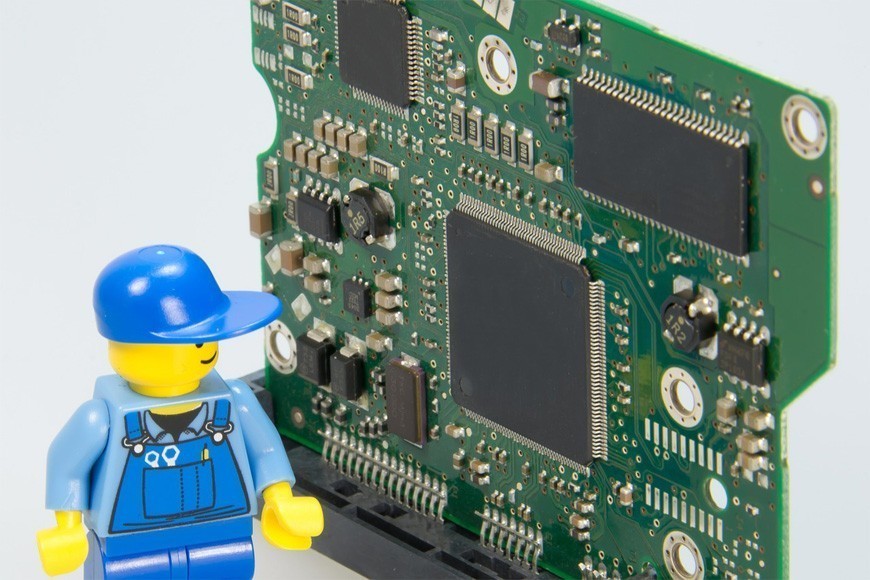Certified Embedded System
Certified Embedded System – Course Overview

Course Name: Certified Embedded System
Course Duration: 3 Months
Course Overview:
Embedded systems are more than part of human life. For instance, one cannot imagine life without mobile phones for personal communication. Its presence is virtually unavoidable in almost all facets of human endeavor. Nearly every electronic product designed today includes at least one microcontroller or other embedded processor. The course provides an in depth understanding of the architecture, pin description and Interfacing of the microcontroller with various input and output peripherals. The course includes the study of low end, mid-range and high end microcontrollers like 8051, PIC 16F and PIC 18F, AVR and ARM7. It also provides understanding of the serial communication protocols like I2C, SPI & CAN.
Course Content:
Module 1: C Programming
- Introduction to C
- Software description
- Compilation stages of C programming
- C Program structure
- C input and Output (I/O)
- C Format specifier
- C Token
- C Identifiers
- C Keyword
- C Data types
- C Arrays
- C Strings
- C Storage classes
- C Constant
- C Operators
- C Variables
- C storage Classes
- C Pre-processors
- C Type casting
- Conditional Branching control statements
- Conditional looping control statements
- Error Handling
- C Functions
- C Function arguments
- C Loops
- C Data structure
- C Variable scope
- C Pointers
- C Memory management
- GNU GCC compiler
- creating libraries
- Make files
Module 2: 8051 Microcontroller
- Microprocessor Vs Microcontroller
- Von Neuman Vs Harvard architecture
- CISC Vs RISC
- Introduction to 8051 Microcontroller
- Timers & Counters
- Interrupts
- UART (Tx/Rx)
- External hardware interfacing with 8051
- LEDS
- SSD (Common Anode and Common Cathode)
- Motor interfacing (DC motor
- Stepper motor
- Servo motor)
- SPDT Relay interfacing
- LCD interfacing (4 Bit mode & 8 Bit mode)
- Matrix keypad
- ADC (Analog to Digital Converter)
- Serial communication using UART
- HC-05 Bluetooth interfacing
Module 3: PIC16F877A Microcontroller
- Introduction to PIC16F877A
- High performance RISC CPU features
- On – Chip peripherals
- GPIO Ports: Input / Output configuration
- Timers & Counters
- Interrupts
- CCP modules
- USART
- External hardware interfacing with PIC16F877A
- SSD (Common Anode and Common Cathode)
- Motor interfacing (DC motor/ Stepper motor/ Servo motor)
- SPDT Relay interfacing
- LCD interfacing (4 Bit mode & 8 Bit mode)
- Matrix keypad
- ADC (Analog to Digital Converter)
- Serial communication using USART
Module 4: AVR Atmega16
- Introduction to AVR family
- Introduction to Atmega16 microcontroller
- Register set and memories
- On – Chip peripherals
- GPIO Ports: Input / Output configuration
- Timers / Counters
- Interrupts
- External hardware interfacing with Atmega16
- SSD (Common Anode and Common Cathode)
- Motor interfacing (DC motor
- Stepper motor
- Servo motor)
- SPDT Relay interfacing
- LCD interfacing (4 Bit mode & 8 Bit mode)
- Matrix keypad
- ADC (Analog to Digital Converter)
- Serial communication protocols
- USART
- SPI
- I2C
- Wireless protocols
- RFID
- GSM
- GPS
- Bluetooth
Module 5: PIC18F4550 Microcontroller
- Introduction to PIC18F4550
- Register and data memory organization
- On – Chip peripherals
- GPIO Ports: Input / Output configuration
- Timers / Counters
- Interrupts
- External hardware interfacing with Atmega16
- LEDS
- SSD (Common Anode and Common Cathode)
- Motor interfacing (DC motor
- Stepper motor
- Servo motor)
- SPDT Relay interfacing
- LCD interfacing (4 Bit mode & 8 Bit mode)
- Matrix keypad
- ADC (Analog to Digital Converter)
- Button interfacing
- Serial communication protocols
- EUSART
- SPI
- I2C
- Wireless protocols
- RFID
- GSM
- GPS
Module 6: ARM7
Introduction to ARM7
- Processor operating modes
- Instruction pipeline
- ARM operating modes
- Introduction to LPC2148
- GPIO registers
- TIMER and PLL configuration
- VIC and Serial communication
- External hardware interfacing with LPC2148
- LED interfacing
- SSD (Common anode and Common cathode)
- Motor interfacing
- LCD interfacing
- Keypad interfacing
- Relay interfacing
- ADC interfacing
- Serial communication protocols
- UART
- SPI
- I2C
- CAN
- Wireless protocols
- Bluetooth
- RFID
- GSM
- GPS
- ZigBee
Please Note:
Target Groups:-
* Engineering Students
– Electrical Students
– Electronics Students
– Mechanical Students
– Mechatronics Students
– IT Related Students
– Technical Students
* Working Professionals
– Mechanical Engineering
– Electrical Engineering
– Electronics Engineering
– Mechatronics Engineering
– IT Related Professionals
– Technicians
Week Days: Monday To Friday (45 Mins To 1.00 Hr Theory Session + 45 Mins To 1.00 Hr Practical Session) Session Duration: 1.30 Hrs To 2.00 Hrs
Week End: Saturday To Sunday (1.00 Hr To 2.00 Hr Theory Session + 1 Hr To 2.00 Hrs Practical Session) Session Duration: 2.00 Hrs To 4.00 Hrs
